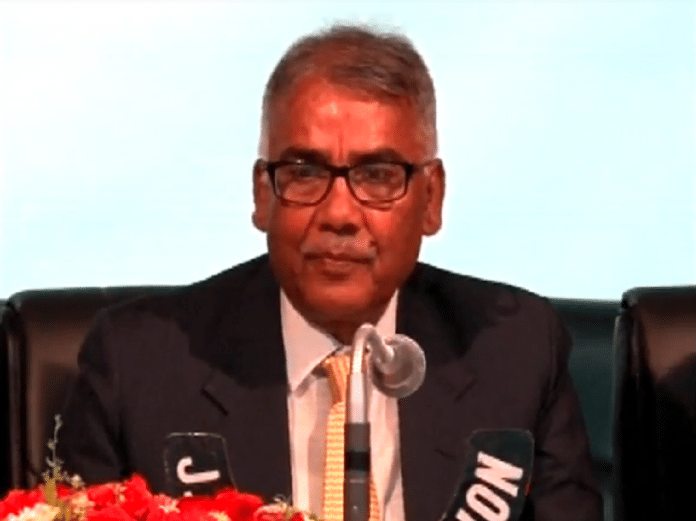New Delhi: The Press Council of India’s (PCI) recent advisory, urging the media to publish extracts of foreign content only after due verification, was issued after the government sought legal opinion on the matter from the media watchdog, its chairman Justice C.K. Prasad (retd) told ThePrint.
The PCI will now discuss the matter again in its board meeting scheduled next week, after the Editors Guild of India (EGI) asked the media watchdog to withdraw this “ominous sounding” advisory, stating that it has “disturbing implications”.
“The government had sought a legal opinion from the PCI on this matter, which the PCI had given to the government,” the PCI chairman told ThePrint.
“As far as the EGI statement is concerned, no formal request has been received by the council from EGI, but taking note of the media reports on it, it has been directed that the matter be listed before the council in its next meeting,” he added.
He refused to comment further on the matter.
In the advisory issued last week, PCI said that it is of the view that unregulated circulation of the foreign content is “not desirable”. It had also said that the reporter, publisher and editor of such newspaper shall be responsible for the foreign extracts published in a newspaper, irrespective of the source from which it is received.
Constituted in 1966 as an autonomous, statutory, quasi-judicial body, the Press Council serves as a watchdog for newspapers and news agencies of the country, with power to censure outlets for violations.
‘Govt may have received complaints’
Talking about the issue, a PCI official said it is likely that the government would have received complaints on this particular issue, which is what would have prompted it to seek the council’s opinion on the matter.
“The PRB Act clearly mentions that the editor of a newspaper is responsible for everything published in a newspaper. The council never said not to publish foreign content, but only said that it should be verified. So how is it censorship?” the official asked, referring to the EGI statement.
This is, however, not the first time that a move by the PCI has got embroiled in a controversy.
In August last year, the council had moved the Supreme Court supporting the Centre’s decision to impose restrictions on communications in Jammu and Kashmir, by seeking intervention in the petition filed by Anuradha Bhasin, executive editor of Kashmir Times.
Subsequently, the EGI issued a statement condemning the “unilateral” nature of the decision, asking the PCI to rescind the move. Multiple other media bodies had also criticised the move.
The PCI had then written a letter to all its council members stating that if the intervention application was taken up by the Chief Justice, the stand of the council before the court would be that “it stands for the freedom of the press”, and that it “does not support any sort of restrictions on the media”.
The letter further said that a sub-committee of members has been formed to study the “media scenario in J&K”. PCI secretary Anupama Bhatnagar, had, however clarified that “no change has taken place in the stand of the council as the intervention application did not come up for hearing”.
‘PCI-like council for other media’
The official quoted above said PCI has so far received a total of over 2,500 complaints this year on various issues relating to the print media.
Sources in the PCI said that the body has time and again taken up a proposal with the government for setting up a PCI-like media council to regulate all other media platforms.
“There should be a PCI-like body to regulate all other forms of media, such as the digital media and the television media. We have taken this up with the government several times,” the PCI official quoted above said.
A push on this proposal from the PCI also comes amid the recent move of the government to bring in all digital news websites and OTT platforms like Netflix under the jurisdiction of the information & broadcasting ministry, even as the ministry will finalise a roadmap only after consultations with the industry stakeholders.
Last month, I&B minister Prakash Javadekar had noted the absence of self-regulation for streaming platforms and had also said that the government is deliberating on drafting a common code of conduct for all television news channels.
Sources also said that the report of a sub-committee of members formed to study the “media scenario in J&K” would also be presented before the council soon for deliberations.
Also read: Why Netflix is planning to double its spending on original content in Asia






